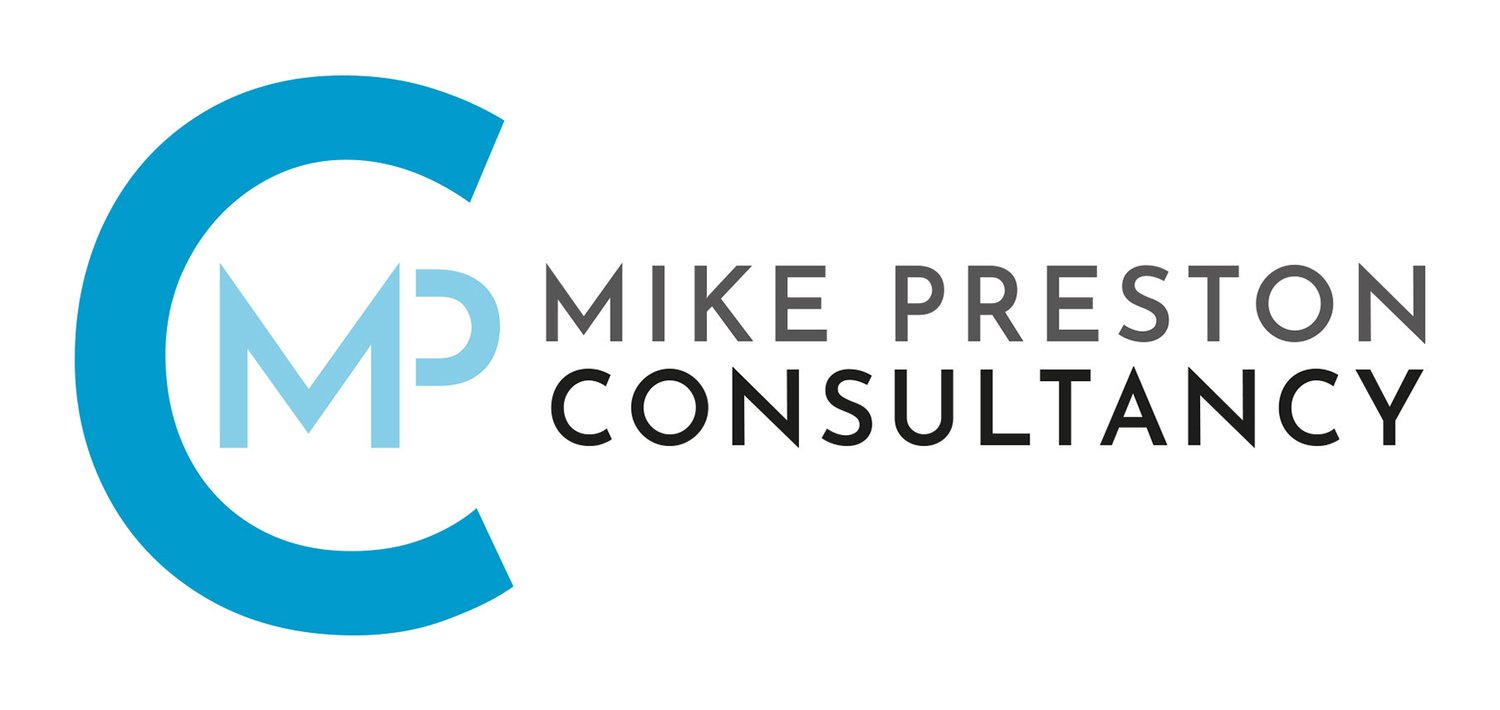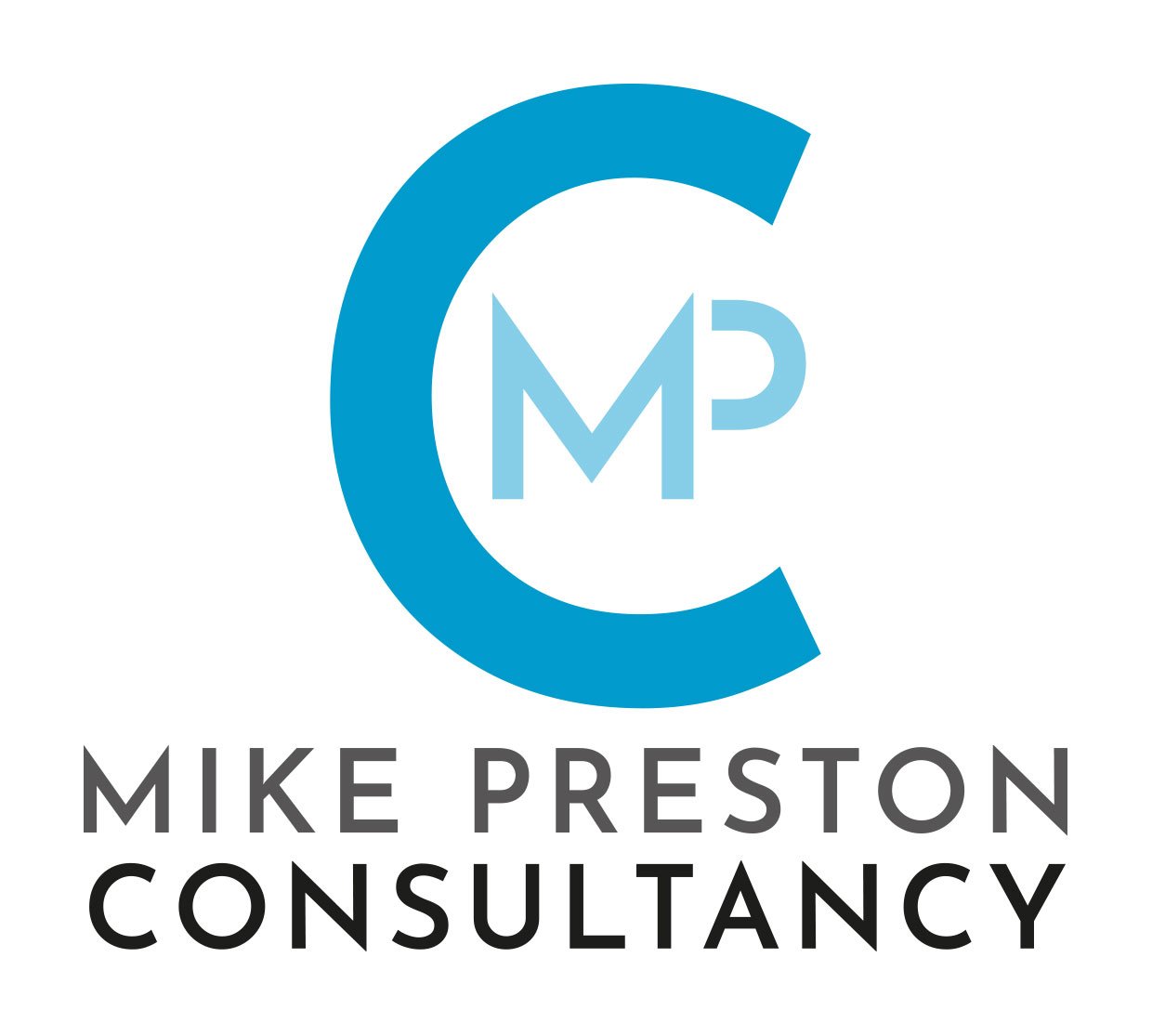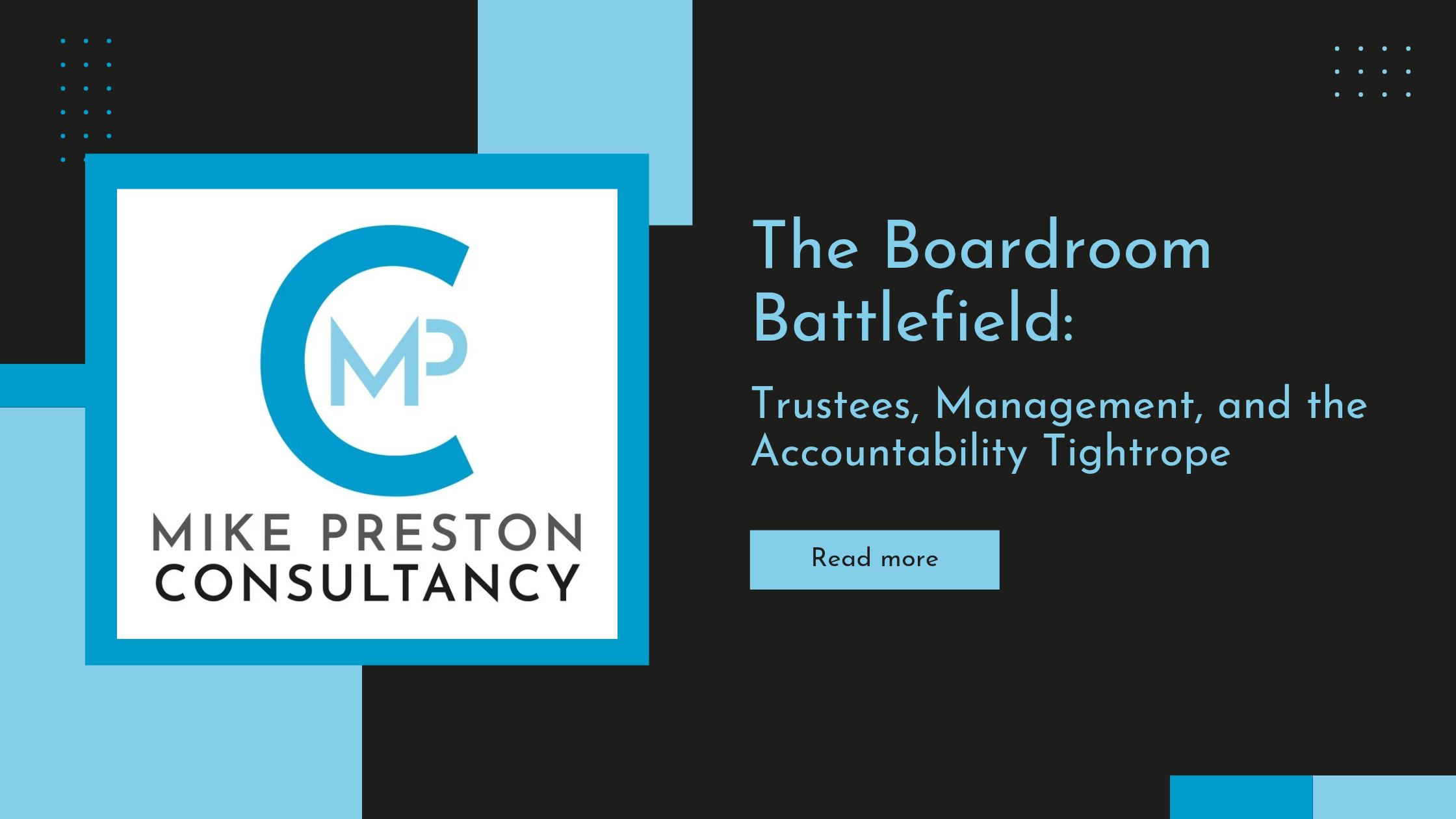The Boardroom Battlefield: Trustees, Management, and the Accountability Tightrope
The boardroom. It's often imagined as a serene space of thoughtful deliberation, strategic foresight, and harmonious decision-making. The reality, especially within the vital charity and non-profit sector, can be far more dynamic – a veritable battlefield where trustees and management grapple with differing perspectives, challenging realities, and the ever-present tightrope of accountability.
For organisations dedicated to making a positive impact, the relationship between the board of trustees and the operational management is the very bedrock of success. When it works well, it's a powerful synergy. When it falters, the mission, reputation, and even the existence of the organisation can be at risk.
The Inherent Tension: Oversight vs. Operations
At its core, the "battlefield" arises from the distinct, yet interdependent, roles.
Trustees are the ultimate guardians of the organisation's mission, values, and assets. They hold the strategic reins, ensuring compliance, financial probity, and the long-term sustainability of the charity. Their role is one of oversight, asking the tough questions, providing critical challenge, and holding management to account.
Management, led by the CEO or equivalent, is responsible for the day-to-day operations, implementing the strategic vision set by the board, and delivering on the organisation's charitable objectives. They are in the trenches, dealing with operational realities, staff, beneficiaries, and external stakeholders.
The tension often emerges when these two spheres collide. Trustees, with their governance hat on, may question operational decisions, demanding detailed reports and explanations. Management, focused on delivery, might feel micromanaged or that trustees don't fully grasp the complexities of their daily work.
Navigating the Accountability Tightrope
The tightrope of accountability is a delicate balance. Trustees must exercise their fiduciary duty and ensure the charity is well-run, transparent, and effective. This requires:
Constructive Challenge: A healthy board isn't a rubber stamp. Trustees must feel empowered to ask difficult questions, scrutinise proposals, and challenge assumptions. This isn't about being adversarial, but about ensuring robust decision-making.
Clear Roles and Responsibilities: Ambiguity is the enemy of good governance. A clear understanding of who is responsible for what – from strategic planning to financial reporting and risk management – is crucial.
Timely and Relevant Information: Trustees can only hold management accountable if they have access to accurate, concise, and timely information that allows them to understand performance, identify risks, and make informed decisions.
Effective Communication: Open, honest, and regular communication channels between the board and management are paramount. This includes formal board meetings, but also informal dialogue and mutual respect.
Risk Management: Boards must oversee the charity's risk appetite and ensure that robust risk management frameworks are in place and adhered to. This often means challenging management to identify and mitigate potential threats.
Conversely, management needs to embrace accountability, providing the board with the information and transparency they need to fulfil their oversight role. This involves:
Proactive Reporting: Providing clear and comprehensive reports that address key performance indicators, financial health, and strategic progress.
Transparency: Being open about challenges, setbacks, and difficult decisions, rather than sugar-coating information.
Responsiveness: Addressing trustee queries and concerns promptly and thoroughly.
Strategic Alignment: Demonstrating how operational activities align with the board-approved strategy.
The Consequences of Imbalance
When the balance on the accountability tightrope is lost, the consequences can be severe:
Micromanagement: Trustees delve too deeply into operational details, stifling management's autonomy and efficiency.
Lack of Oversight: Trustees are too hands-off, failing to challenge management or fulfil their governance duties, potentially leading to financial mismanagement or mission drift.
Poor Decision-Making: A breakdown in trust or communication can lead to ill-informed decisions that harm the organisation
conflict and Dysfunction: Personality clashes, power struggles, and unresolved disagreements can paralyse the board and demoralise staff.
Reputational Damage: Lack of transparency or clear accountability can erode public trust and damage the charity's reputation.
Strengthening Your Boardroom Battlefield with Mike Preston Consultancy
Navigating the complexities of trustee-management relationships and fostering a culture of robust accountability is not always easy. This is where Mike Preston Consultancy excels.
With extensive experience in the charity sector, Mike Preston Consultancy offers a range of services specifically designed to empower your organisation to thrive in the boardroom and beyond:
Governance Reviews & Development: We can assess your current governance framework, identify areas for improvement, and help you implement best practices to ensure clear roles, responsibilities, and effective oversight.
Board Training & Facilitation: From workshops on effective board dynamics and strategic planning to fostering constructive challenge and conflict resolution, we equip both trustees and management with the skills to work together seamlessly.
Strategic Planning Support: We help boards and management collaboratively develop clear, actionable strategies that align with your mission and provide a strong framework for accountability.
Leadership Coaching: Supporting both board chairs and senior management to develop the leadership skills necessary to foster a healthy, productive boardroom environment.
Critical Friend Advisory: We act as an independent "critical friend," offering objective insights, challenging assumptions, and helping you draw out the best from your entire organisation.
Don't let your boardroom become a battlefield of inefficiency.
Let Mike Preston Consultancy help you transform it into a highly effective engine for positive change, where trustees and management work in powerful partnership, confidently navigating the accountability tightrope to achieve your charitable mission.
Contact Mike Preston Consultancy today to discuss how we can help your organisation strengthen its governance and maximise its impact.


